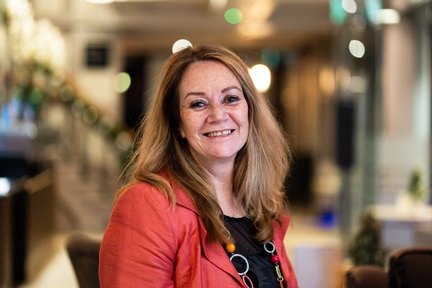Parents favour tooth-brushing lessons at nurseries
A new poll reveals 82 per cent of parents and 76 per cent of teachers would like to see compulsory tooth-brushing lessons in nurseries - paid for by the government.
![]() Credit: Ilya Andriyanov /Shutterstock
Credit: Ilya Andriyanov /Shutterstock
In total, 1,200 parents took part in a poll which also revealed most teachers (62 per cent) are very concerned about the state of children’s teeth at their nurseries and schools.
A nationwide ‘tooth decay crisis’ has seen 36,500 children admitted to hospital a year for tooth extractions at a cost of £30.5m and 80 per cent of teachers don’t think parents know enough about the importance of dental health.
Joining the battle against tooth decay is the UK dental charity Dental Wellness Trust, which conducted the poll.
The charity wants the government to make funding for supervised tooth brushing ‘an urgent priority across all UK nurseries and primary schools’. It believes supervised tooth-brushing programmes could save the NHS nearly £30m.
Dr Saul Konviser from the Dental Wellness Trust said: “Every day we, as dentists, see a large number of children that require not just a simple filling but often multiple fillings or extractions.
“These children can often attend with severe dental infections and swollen faces needing antibiotics or even sedation or a general anaesthetic. It is bordering on dental neglect and, what is worse, is that it is almost completely avoidable. Now is the time to put prevention into practice.”
![]() Tooth-brushing lessons at Katharine Bruce Community Nursery (LEYF) Credit: Isabelle Johnson / LEYF.
Tooth-brushing lessons at Katharine Bruce Community Nursery (LEYF) Credit: Isabelle Johnson / LEYF.
Dentist Dr Linda Greenwall, who set up Dental Wellness Trust in 2011, said: “Although tooth decay does not discriminate, there are huge inequalities in oral health with tooth decay being strongly associated with deprivation and social exclusion.
"Whilst it’s evident that our self-funded oral health prevention and tooth brushing programmes do work – we urgently need further government funding to continue providing this vital service to all children.
“The cost saving to the government is staggering and we urge decisions makers to fund these schemes and tackle this wholly preventable disease.”
Quoting figures from Public Health England, the charity said tooth brushing lessons could reduce tooth decay in children by almost a third (30 per cent).
Severe tooth decay may be a sign of neglect
Almost a quarter (24.7 per cent) of parents are at risk of neglecting their child’s wellbeing by being unconcerned that their child is at risk of tooth decay if they don’t’ brush their teeth regularly.
Some 16.2 per cent of parents take their child to the dentist every twelve months instead of the recommended every six months and 7.4 per cent of parents have never taken their child to a dentist.
This contradicts a recommendation by the British Society of Paediatric Dentistry that all children have a dental check by the age of one.
Reasons given by parents for not giving their child a dental check-up include being too scared, saying it was too difficult to get an appointment or their children’s dental health not a concern.
The Dental Wellness Trust is calling for all early years practitioners that have regular interaction with children to be on high alert for possible safeguarding where cases are found of severe dental decay.
The charity argues this responsibility does not lie solely with social services.
Where parents repeatedly fail to access dental treatment for a child’s tooth decay or leave dental pain untreated, ‘alarm bells should ring for all those working with or responsible for children to consider neglect’, the charity said.
Less nursery days lost
Keen to lead the fight against the tooth decay crisis in children’s early years is Katharine Bruce Community Nursery in London operated by LEYF Nurseries group.
Tooth brushing lessons have been introduced at Katharine Bruce Community Nursery with cleaner teeth among the many benefits.
Yvonne Cadore, nursery manager at Katharine Bruce Community Nursery said: “Both parents and teachers have been very supportive of the tooth brushing programme in our nursery as it has provided the opportunity for children to be taught something essential alongside their friends and maintain good habits.
“It goes without saying, better dental hygiene taught at an early age will have long term benefits for children’s teeth, less nursery and school days lost and better for the general health and wellbeing of our children.”
click here for more details or to contact The London Early Years Foundation (LEYF)
Latest News
 24-Apr-24
Find out the top nurseries in 2024
24-Apr-24
Find out the top nurseries in 2024
 06-Jun-23
UK's top nurseries in 2023 revealed
06-Jun-23
UK's top nurseries in 2023 revealed
 16-Dec-22
Winter Wonderland: Ice sculptures, aerial acrobatics and white knuckle rides
16-Dec-22
Winter Wonderland: Ice sculptures, aerial acrobatics and white knuckle rides
 28-Nov-22
5 mins with Caroline Wright, early childhood director at Bright Horizons
28-Nov-22
5 mins with Caroline Wright, early childhood director at Bright Horizons
 25-Nov-22
Camilla gives nursery children Paddington bears left as tribute to Queen Elizabeth II
25-Nov-22
Camilla gives nursery children Paddington bears left as tribute to Queen Elizabeth II